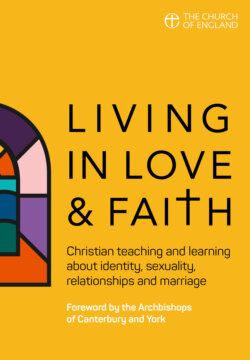Читать книгу Living in Love and Faith - Bishops of the Church of England - Страница 25
На сайте Литреса книга снята с продажи.
Science
ОглавлениеThe Christian faith is a faith that rejoices in the material world. The world’s seemingly infinite diversity and intricate interdependence reflect the glory of its creator. The work of the sciences, therefore, is a means of enlarging and enriching our understanding of the cosmos and therefore of the God who made it. The sciences’ questions are not so much about meaning or purpose, but about how and why things are as they are in the material world: the sciences help us to interpret the Bible and to see how they and theology are complementary pursuits of truth that deepen our understanding of God, ourselves and the world. Science and theology belong together and need to be pursued together.
But, as we have seen from our learning from the Bible, from the church’s tradition and from history, our knowledge is always incomplete and seeking greater understanding. There is always more to learn, and what we think we know may be interpreted differently by different people or in different circumstances. This is the case for science just as much as it is for other disciplines. Scientific knowledge is always provisional not only because there is always more to know but because scientists are constantly questioning whether what seems right today is really the full picture. Scientific knowledge is structured around hypotheses, models and concepts that may be invalidated by empirical evidence. New models need to be made to fit ‘unexpected’ observations, until they, too, are discarded by new evidence.
As with other areas of knowledge, our scientific understanding of the world may be skewed by the questions we choose to ask, by what we choose to observe, or by how we interpret those observations. Scientific findings can unwittingly be used as ‘proof’ of a particular viewpoint, when, in fact, the evidence is far from clear because it is not replicable or because it makes cause and effect claims on shaky evidence. The social and psychological sciences are particularly vulnerable to such misuse because they may challenge not only our understanding but our behaviours as individuals or as a society. They therefore may be even more prone to biased interpretations or inferences about cause and effect.
Another reason why scientific research may not offer the kinds of definitive answers we might be hoping for is because scientific investigations often uncover greater complexity and diversity which lead to the need for further research before conclusions can be reached. This is what makes scientific endeavour so fascinating and awe-inspiring – but frustrating for people who want simple or authoritative answers where none are to be found. Think, for example, about the question of whether sexual orientations are genetically or environmentally determined. Most psychological traits are determined by a complex interplay of genes and environment, and sexual orientation would appear to be no exception. It is not an either/or question.
This is not to say that nothing can be said: far from it. As peer-reviewed scientific investigations progress, a weight of evidence emerges in one direction or another, and it is this weighted evidence that we rely on when discussing scientific matters in this book. The sciences reveal things concerning the world and human nature which we can be confident about, and which we need properly to bear in mind when thinking theologically.
While neither history nor the sciences alone yield the wisdom for leading Christlike lives of love and faith, respectful and informed engagement with them is vital for the theological task. This book invites us to a humble, informed and respectful engagement with a range of disciplines in the belief that this will enhance and deepen our learning together.
For a discussion about the place of the biological and behavioural sciences in the study of human identity, sexuality and relationships see Chapter 6 (here–here). The role of science and natural knowledge in Christian understanding is explored in Chapter 15 (here–here).
